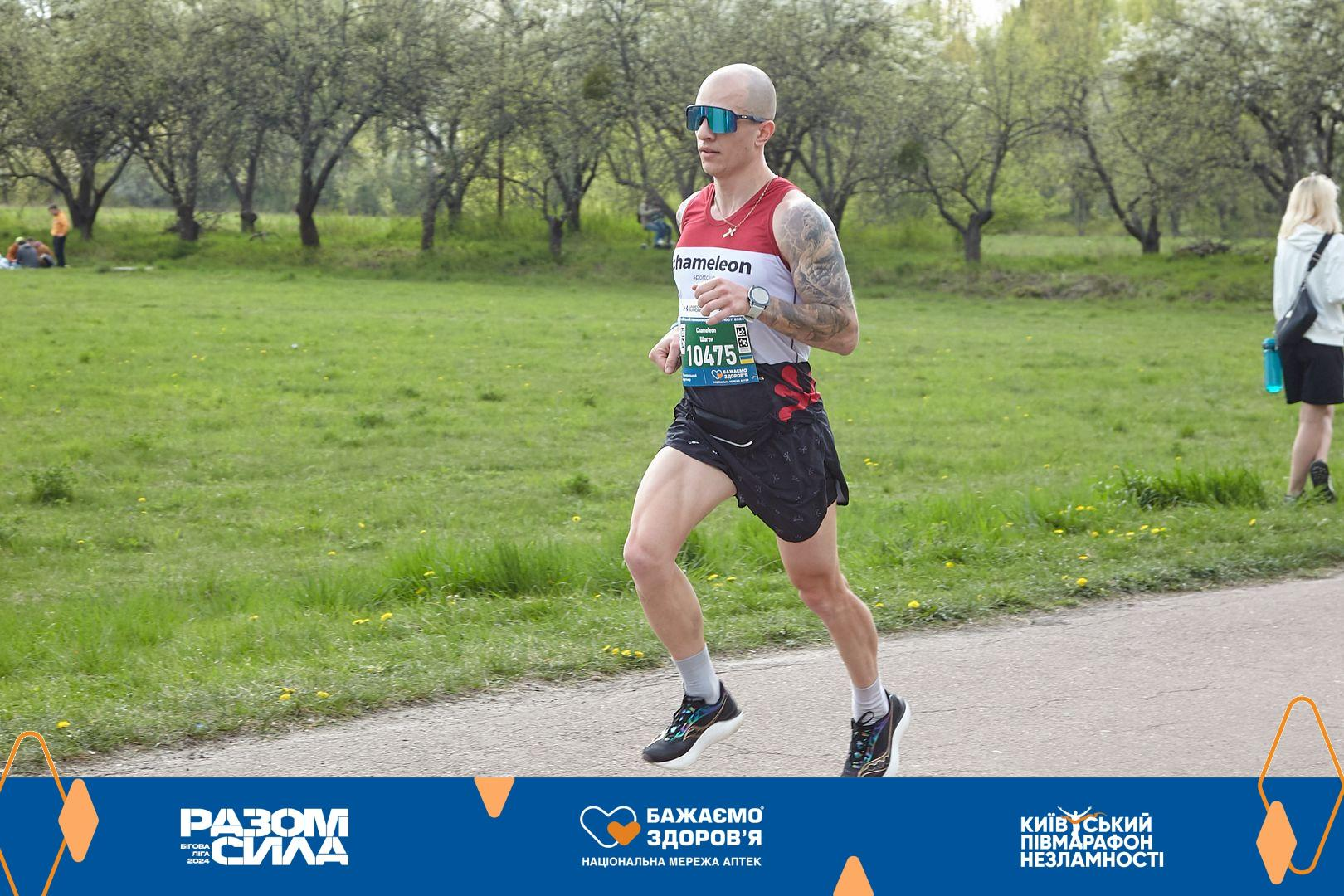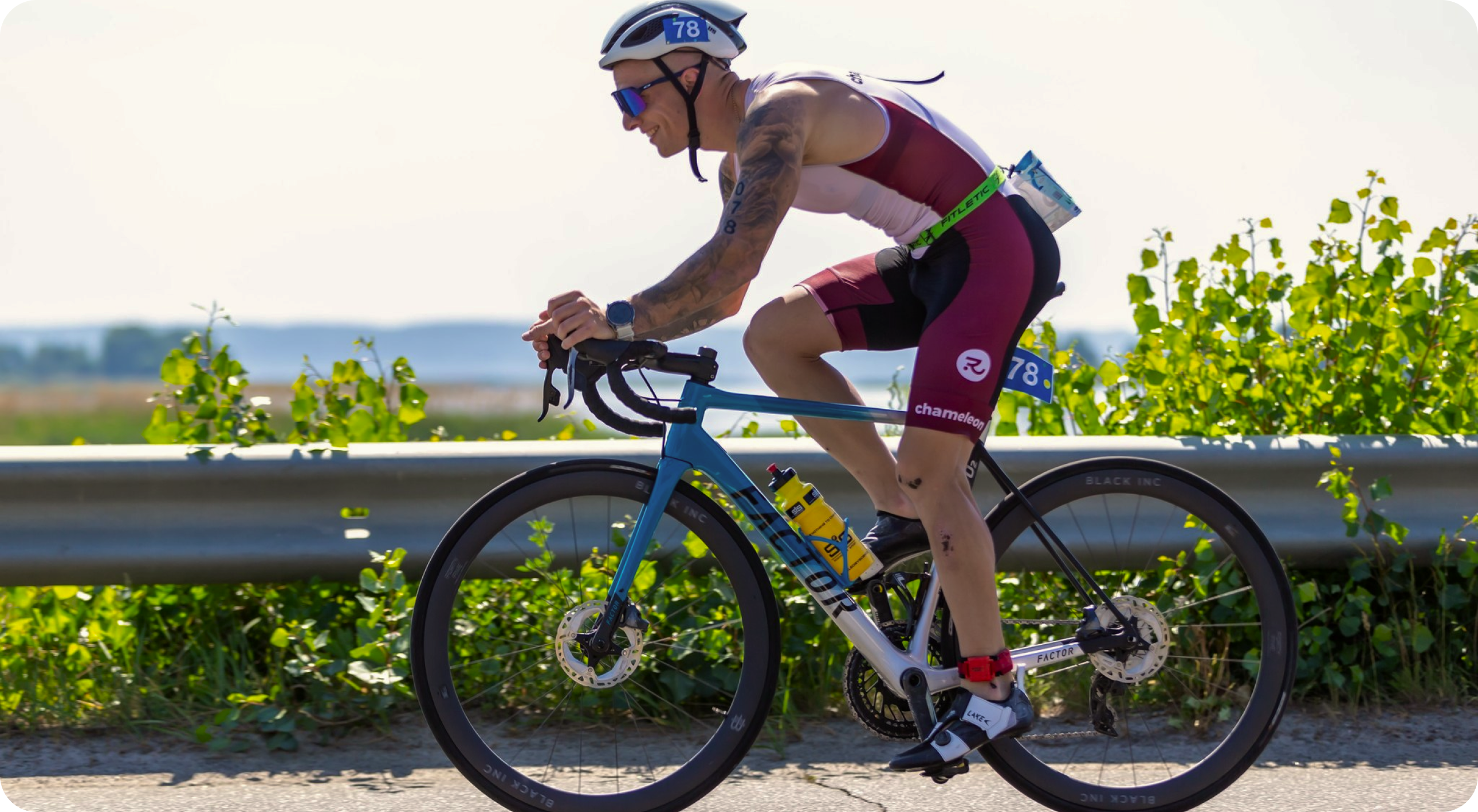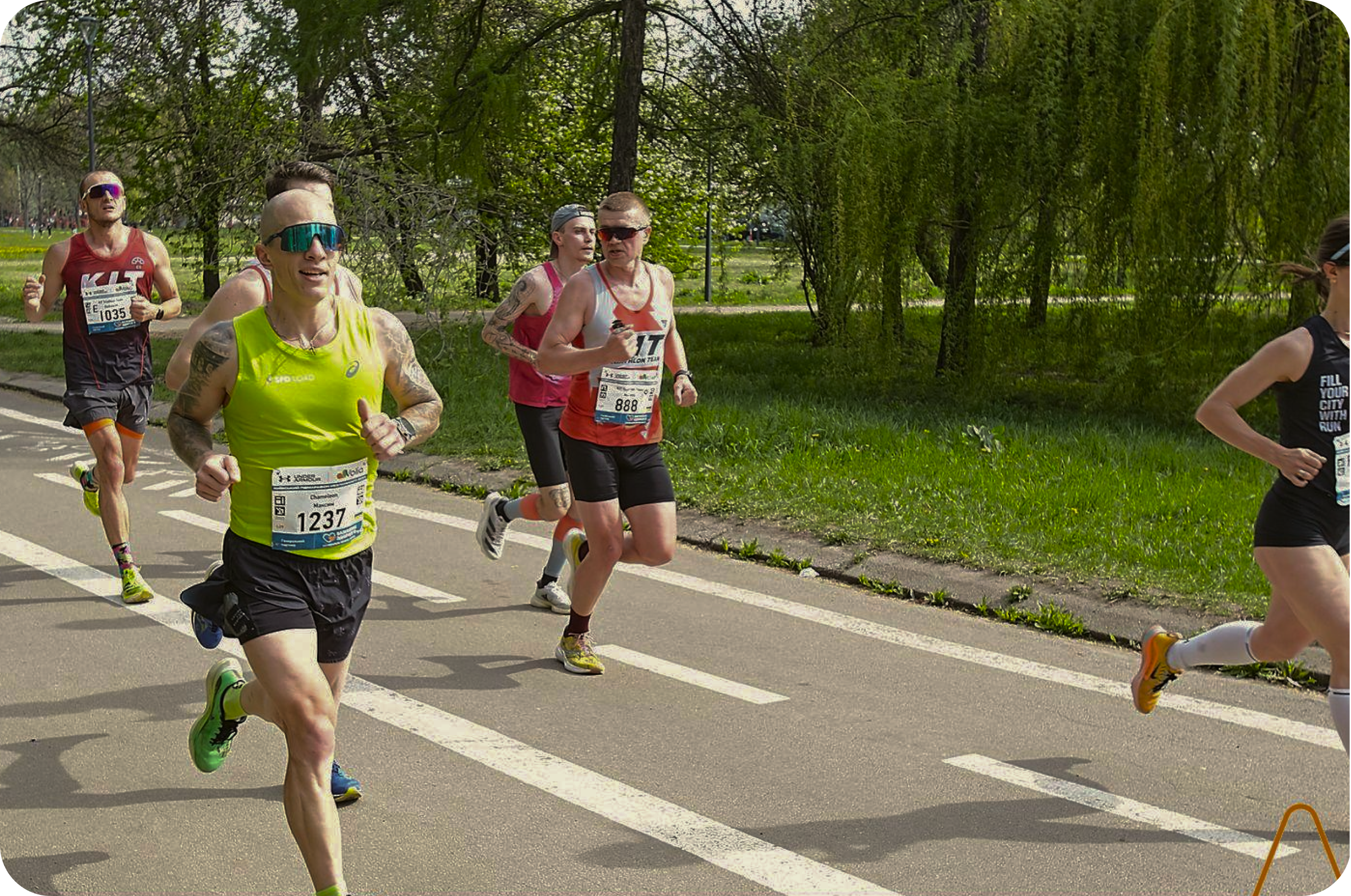The significance of post-race recovery nutrition cannot be overstated in the world of competitive sports.
Whether you’ve just completed a grueling Ironman triathlon marathon, a demanding marathon, or a challenging cycling race.
What you do immediately after the finish line plays a crucial role in your overall performance, muscle repair, and future success.
This article aims to help athletes and fitness enthusiasts understand the critical role that nutrition plays in post-race recovery.
We will explore the science behind muscle repair and glycogen restoration, uncover the essential nutrients needed for recovery, and provide practical post-race meal ideas tailored to aid in your body’s restoration process.
So let’s start this journey.
The Science of Post-Race Recovery
Whether you’ve just completed a marathon, triathlon, or any other intense physical activity, your body is under a lot of stress.
Therefore, immediate recovery is necessary.
In this section, we’ll explore the complex mechanisms of post-race recovery.
We will focus on two key aspects: muscle recovery and glycogen recovery.
Muscle Recovery and Repair
Protein is the cornerstone of post-race muscle recovery.
During intense physical activity, your muscles undergo stress and micro-tears.
Protein provides the essential amino acids necessary to repair and rebuild these damaged muscle fibers. That is why it is important to support protein synthesis after race.
Consuming protein-rich foods or supplements can aid recovery and eliminate muscle soreness.
Lean protein like poultry, fish, eggs, and plant-based sources like beans, lentils, and tofu are excellent protein sources for recovery.
Timing is crucial when it comes to protein intake for recovery.
The so-called “anabolic window” immediately post-race recovery is when your muscles are most receptive to protein consumption.
Aim to consume protein within 30 minutes to two hours after completing your race.
This window allows for optimal muscle repair and growth.

2. Muscle Repair
Carbohydrates are your body’s primary fuel source during endurance exercise.
In a race, you deplete your glycogen stores, and replenishing them post-race is vital for recovery.
Carbohydrates are rapidly converted into energy, making them essential for restoring depleted energy stores.
Adequate carbohydrate intake helps prevent post-race fatigue and promotes overall recovery.
Timing and the types of carbohydrates you consume post-race can impact your recovery significantly.
Consume carbohydrates within the first few hours post-race to jumpstart glycogen restoration.
Foods like pasta, rice, bread, and fruits are excellent choices.
While fast carbohydrates provide quick energy, complex carbohydrates such as whole grains provide long-lasting energy for endurance athletes.
They are ideal for longer recovery periods.
Understanding the science of post-race recovery, including the role of protein and carbohydrates, is fundamental to optimizing the recovery process.
The next section will delve into specific nutrient-rich foods that can aid in reducing muscle soreness and glycogen restoration.

Essential Nutrients for Recovery
In the pursuit of optimal post-race recovery, your choice of nutrients plays a pivotal role.
Nutrient-rich foods provide the building blocks.
They help reduce muscle soreness and aid in glycogen replenishment and overall rejuvenation.
In this section, you’ll learn about the main nutrients your body needs after a hard race.
We will focus on foods rich in protein, carbohydrates, and healthy fats.
Protein-Rich Foods
Protein is the foundation of post-race recovery.
It catalyzes muscle repair and growth.
We’ll explore two categories of protein-rich foods that can aid in your recovery journey:
1) Lean Meats and Poultry
These animal protein sources are not only rich in protein but also contain essential nutrients such as iron and zinc.
These foods include Greek yogurt, chicken, turkey, and lean cuts of beef.
We’ll delve into their role in muscle repair.
2) Plant-Based Protein Sources
For those who prefer a plant-based diet, we will open up the world of plant proteins.
These include beans, lentils, tofu, and much more.
These options offer protein, fiber, and an array of vitamins and minerals that support recovery.

2. Carbohydrate Choices
Carbohydrates are the body’s primary energy source, and their role in post-race recovery is undeniable.
We’ll explore carbohydrate choices that can replenish glycogen stores and help you recover more efficiently.
1) Whole Grains and Complex Carbs
Whole grains like brown rice, quinoa, and oats are rich in complex carbohydrates.
They provide sustained energy, making them ideal for replenishing glycogen during the recovery phase.
2) Fruits and Vegetables
Fruits and vegetables offer a diverse range of carbohydrates, along with essential vitamins and minerals.
We’ll delve into how these natural sources can aid in your recovery journey.

3. Healthy Fats
While protein and carbohydrates are often the focus of attention, healthy fats provide a unique set of benefits.
These benefits contribute to overall recovery and well-being.
1) Sources of Omega-3 Fatty Acids
Omega-3 fatty acids are a specific type of healthy fat renowned for their anti-inflammatory properties and numerous health benefits.
They are integral to post-race recovery for several reasons:
– Inflammation Reduction
– Heart Health
– Brain Health
Common sources of omega-3 fatty acids include fatty fish such as salmon, mackerel, and trout.
Plant-based options like flaxseeds, chia seeds, and walnuts are also rich in omega-3s.
2) Avocado, Nuts, and Seeds
Avocados, nuts, and seeds are excellent sources of healthy fats, primarily monounsaturated fats and polyunsaturated fats.
Here’s why they are valuable for post-race recovery:
– Sustained Energy.
– Nutrient Density
– Satiety
Incorporating these foods into your post-race nutrition plan can enhance your recovery efforts.
It provides you with essential healthy fats that promote overall health and well-being.
Whether enjoyed as a snack, added to a recovery meal, or used as a topping, these sources of healthy fats can be delicious additions to your recovery diet.
Hydration and Electrolytes
In the pursuit of optimal post-race recovery, it’s essential to remember that nutrition is only part of the equation.
Hydration and the balance of electrolytes are equally critical components that can significantly influence your recovery.
This section will delve into the intricate relationship between hydration and recovery, focusing on three key aspects:
1. Rehydration Strategies
Hydration begins immediately after a race, as the body’s need for fluids increases after significant energy expenditure.
Check out our article to learn more about rehydration strategies after a race.
2. Role of Electrolytes in Recovery
Electrolytes are minerals such as sodium, potassium, and magnesium.
They play a vital role in maintaining fluid balance in the body and ensuring proper muscle and nerve function.
During a race, you lose electrolytes through sweat, and their restoration is essential for recovery.
That is why you need to consume sports drinks with electrolytes to keep yourself hydrated.
3. Post-Race Hydration Guidelines
Your hydration strategy doesn’t conclude at the finish line.
The hours and days following the race are crucial for continued hydration.
We’ll provide you with guidance and practical tips on how to maintain optimal hydration during this critical post-race period.
We delve into the field of post-race hydration and the important role of electrolytes.
It will provide you with valuable insights into how these factors affect your recovery journey.
Proper hydration and electrolyte balance are key to helping your body recover faster and more efficiently.
At the same time, it sets the stage for your next sporting victories.

Practical Post-Race Nutrition
In the world of post-race recovery, practical post-race nutrition takes center stage.
As you cross the finish line, your body is in dire need of replenishment to kickstart the recovery effectively.
Nutrient-Rich Recovery Meal Ideas
These meal options provide the right balance of protein, carbohydrates, and healthy fats.
While ensuring you get the nutrients you need for muscle repair, glycogen replenishment, and overall recovery.
Let’s start with some nutrient-rich recovery meal ideas for each category:
Post-Race Breakfast Options
Oatmeal Power Bowl
Start with a base of steel-cut oats or rolled oats cooked in almond milk for added protein.
Top with sliced bananas, a sprinkle of chia seeds, a dollop of almond butter, and a handful of walnuts for healthy fats and omega-3s.
Egg and Veggie Scramble
Cook up a mix of scrambled eggs with spinach, bell peppers, and mushrooms for a boost of protein and antioxidants. Serve with a side of whole-grain toast or quinoa for complex carbs.
Greek Yogurt Parfait
Layer Greek yogurt with mixed berries, granola, and a drizzle of honey for a balance of protein, carbs, and natural sugars. Add some nuts or seeds on top for extra crunch and healthy fats.
Balanced Lunch and Dinner Ideas
Quinoa Salad with Grilled Chicken
Combine cooked quinoa with grilled chicken breast, cherry tomatoes, cucumber, feta cheese, and a lemon-tahini dressing for a protein-packed meal with complex carbs and healthy fats.
Salmon and Sweet Potato Hash
Pan-sear salmon fillets and serve alongside roasted sweet potatoes, sautéed kale, and a sprinkle of pumpkin seeds for a meal rich in omega-3 fatty acids, vitamins, and minerals.
Vegetable Stir-Fry with Tofu
Stir-fry a mix of colorful veggies like bell peppers, broccoli, and snap peas with tofu in a ginger-soy sauce. Serve over brown rice or quinoa for a completely plant-based meal with protein and fiber.
Snacks for Sustained Recovery
Banana with Almond Butter
Slice a banana and spread almond butter on top for a quick and easy snack rich in potassium, healthy fats, and protein.
Trail Mix
Mix together nuts, seeds, dried fruit, and a sprinkle of dark chocolate chips for a portable snack that provides a balance of carbs, protein, and healthy fats.
Hummus and Veggie Sticks
Dip carrot sticks, cucumber slices, and bell pepper strips into hummus for a satisfying snack loaded with fiber, vitamins, and minerals.
These meal ideas offer a variety of nutrient-dense options to support your recovery after a race, providing the essential nutrients your body needs for muscle repair, glycogen replenishment, and sustained energy levels.

The Importance of Rest and Sleep
Nutrition and hydration are paramount in post-race recovery. However, we often neglect a fundamental and sometimes overlooked aspect: rest and sleep.
Sleep is a cornerstone of your body’s recovery process.
Here’s why it’s so crucial:
1) Muscle Repair
During deep sleep, your body releases growth hormone, which stimulates muscle repair and growth.
If you’ve exerted your muscles during a race, this is the time when they recuperate and become stronger.
2) Energy Restoration
Sleep is essential for restoring glycogen, the body’s energy storage molecule.
After a race, your glycogen stores are likely depleted, and sleep plays a key role in replenishing them.
This is vital for your energy levels in subsequent races or training sessions.
3) Immune Function
Sleep boosts your immune system.
After a race, your body’s defenses might be temporarily weakened.
Adequate sleep helps strengthen your immune response, reducing the risk of post-race illnesses or infections.
4) Hormonal Balance
Sleep is essential for hormone regulation.
It aids in maintaining a balance of hormones related to stress and appetite, contributing to overall well-being.
Creating a post-race sleep routine ensures you get the most out of your rest.

Here’s how you can establish one:
1. Consistent Bedtime
Try to go to bed and wake up at the same time every day, even on non-race days.
This helps regulate your body’s internal clock, making it easier to fall asleep and wake up.
2. Sleep-Inducing Environment
Make your sleep environment conducive to rest.
Ensure your bedroom is dark, quiet, and at a comfortable temperature.
Investing in a comfortable mattress and pillows can also significantly impact your sleep quality.
3. Limit Stimulants
Avoid stimulants like caffeine and nicotine close to bedtime.
These substances can interfere with your ability to fall asleep and stay asleep.
4. Wind Down
Сreate a calming bedtime routine that signals to your body that it’s time to sleep.
This could include activities like reading, taking a warm bath, or practicing relaxation techniques.
5. Limit Screen Time
The blue light emitted by screens can disrupt your sleep.
Try to limit screen time to at least an hour before bedtime.
Post-Race Recovery Mistakes to Avoid
While you seek to optimize your recovery and prepare for future athletic endeavors, there are potential pitfalls to avoid.
By recognizing and steering clear of these errors, you can ensure a smoother, more effective recovery process.
1. Overeating or Under-Eating
Post-race nutrition is a delicate balance, and overeating or under-eating can both hinder your recovery.
Overindulging in calorie-dense foods may lead to excessive body weight gain.
Not consuming enough can delay your body’s healing and energy replenishment.
2. Neglecting Hydration
Hydration is not a one-time event; it’s an ongoing process.
Neglecting to rehydrate after a race or consuming only one sports drink during the race can impede your body’s ability to recover.
3. Ignoring the Importance of Sleep
After a race, your body requires quality sleep for optimal recovery.
Ignoring this important aspect can slow down the recovery process.
It can also leave you tired and less prepared for future endeavors.
Conclusion
To conclude the study of post-race nutrition, we recommend that you prioritize recovery nutrition.
It will be enriched with nutrients, and you will also realize the importance of proper hydration and quality sleep.
By doing so, you set yourself on the path to faster and more effective recovery.
The road to faster and more effective recovery is clear.
Eating a nutrient-rich diet, drinking thoroughly, and taking advantage of the restorative benefits of sleep.
Not only are you helping your body recover, but you are also pushing yourself for future athletic performance.
All while avoiding common recovery mistakes and following a post-race nutrition plan.
With this knowledge, you will be able to recover as efficiently as possible after the race.
This ensures that every time you cross the finish line, it will be a new beginning for your next sporting achievement.







